
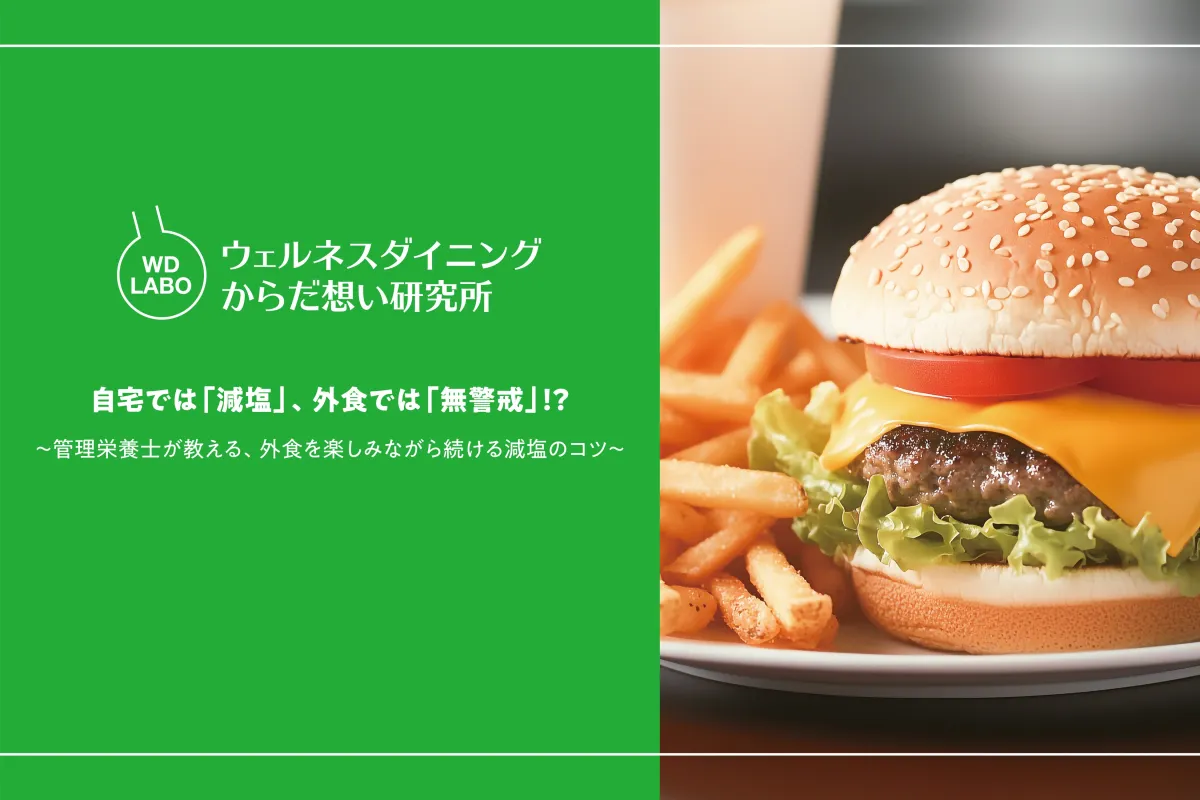
The Gap Between Healthy Salt Consumption at Home and Outside Dining
Exploring the Disconnect: Salt Consumption Awareness
Recent findings from Wellness Dining, Inc. have unveiled a significant gap in salt consumption awareness among Japanese citizens. The study surveyed men and women aged 20 to 60 nationwide, focusing on their attitudes towards salt intake during home meals compared to when dining out. The results indicated that 51% of respondents monitor their salt intake regularly during home-cooked meals. However, when it comes to dining out, nearly 58.7% admitted to not being particularly concerned about their salt consumption.
Key Findings from the Survey:
- - Salt Awareness at Home: A substantial 51% of participants reported being conscious of their salt intake during their everyday meals.
- - Frequency of Dining Out: Approximately 60% of individuals dine out at least once a week, indicating that eating outside is becoming an integral part of their lifestyle.
- - Salt Awareness While Dining Out: A staggering 58.7% stated they do not pay much attention to salt content when eating out, revealing a decline in health consciousness in these situations.
- - Menu Choices and Salt Checks: About 46% of respondents acknowledged they do not check the salt content of their meals when at a restaurant.
This survey sheds light on how people perceive their dietary choices differently at home versus in social dining situations. The disparity indicates an inclination to prioritize flavor and cost over health considerations in social contexts, resulting in higher salt consumption during outings.
The Nuances of Choices
The survey also inquired about the main factors influencing menu selections while dining out. Unsurprisingly, flavor was rated as the most critical factor at 67.2%, followed closely by price at 57.1%. Only 17.5% of respondents mentioned considering salt content when choosing meals. This suggests that while individuals understand the importance of reducing salt intake, the allure of tasty meals and affordability often prevails when they eat out.
Wellness experts emphasize that being mindful of salt intake is crucial, particularly in light of the rising risk of lifestyle-related diseases linked to excessive salt consumption. While dining provides joy and sociability, individuals need to develop strategies to enjoy meals without compromising their health.
Tips from Nutritionists on Eating Out Wisely
1. Choose Wisely
When eating out, opt for grilled, steamed, or boiled dishes which retain their natural flavors without excess salt. Consider lighter options such as grilled meats or vegetable-rich meals. For noodle dishes, leave some of the soup to minimize salt intake, as broths often contain high levels of sodium. You might select a lighter beverage instead of salty soup.
2. Monitor Sauce and Condiments Usage
It is easy to pour too much sauce or seasoning at tableside when dining out. Order sauces on the side to control portions, particularly with dressings or dipping sauces. Use alternatives like lemon juice or fresh herbs to enhance flavor without the extra sodium.
3. Embrace Fresh Herbs and Spices
Herbs and spices like ginger, green onions, and shiso can boost flavor significantly, making dishes more enjoyable without added salt. Traditional Japanese cuisine often taps into umami flavors derived from broth or herbs, allowing for delicious meals that don’t rely heavily on salt.
Proper balance is critical; add side dishes rich in vegetables and adjust portions of starch-heavy items like rice or noodles. These small changes can help regulate blood pressure and prevent swelling.
Ultimately, dining out should be a delightful experience, and fostering a balance between enjoyment and health is vital. This doesn’t mean rigidly restricting selections; rather, taking small, sustainable steps towards incorporating healthier practices. By being conscious of choices and considering variations in menu selection, it is possible to enjoy flavorful meals while safeguarding health. Take your time—gradual transitions often lead to lasting changes.
Conclusion
As we navigate through lives filled with dining experiences, acknowledging discrepancies in our dietary habits is essential. The insights from Wellness Dining’s survey are a reminder that although we may prioritize taste and value in social settings, maintaining a commitment to health is equally important. Awareness and small adjustments can harmonize both enjoyment and wellbeing. As individuals embark on this journey, support and resources are accessible to aid in finding the right balance.
About Wellness Dining, Inc.
Wellness Dining, Inc., focuses on providing tailored dietary options, special diets, and soft food delivery services while promoting an enjoyable dining experience. They are committed to being a supportive partner in personal nutrition management, aiming to help individuals cultivate a sustainable and healthy lifestyle.
Company Details:
- - Location: Sumida City, Tokyo, Japan
- - CEO: Tetsuhiro Nakamoto
- - Founded: June 2011
- - Contact Information: 03-6807-0280
- - Websites: Wellness Dining Service | Corporate Site

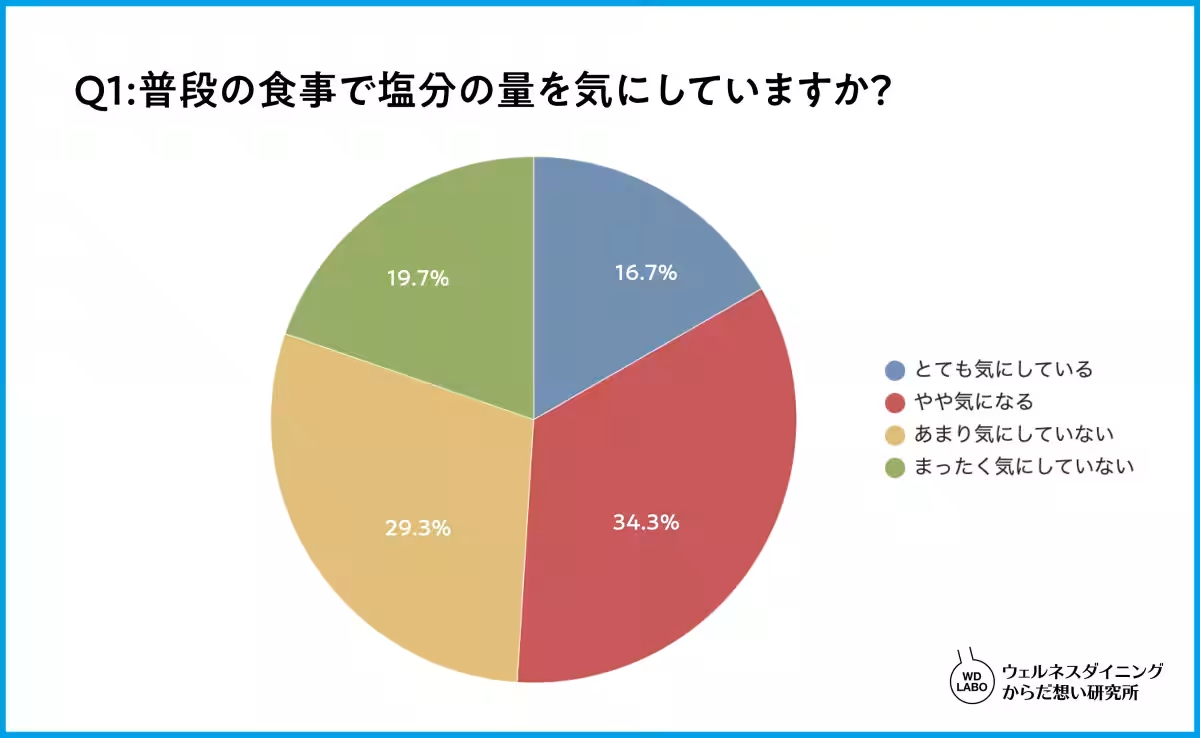
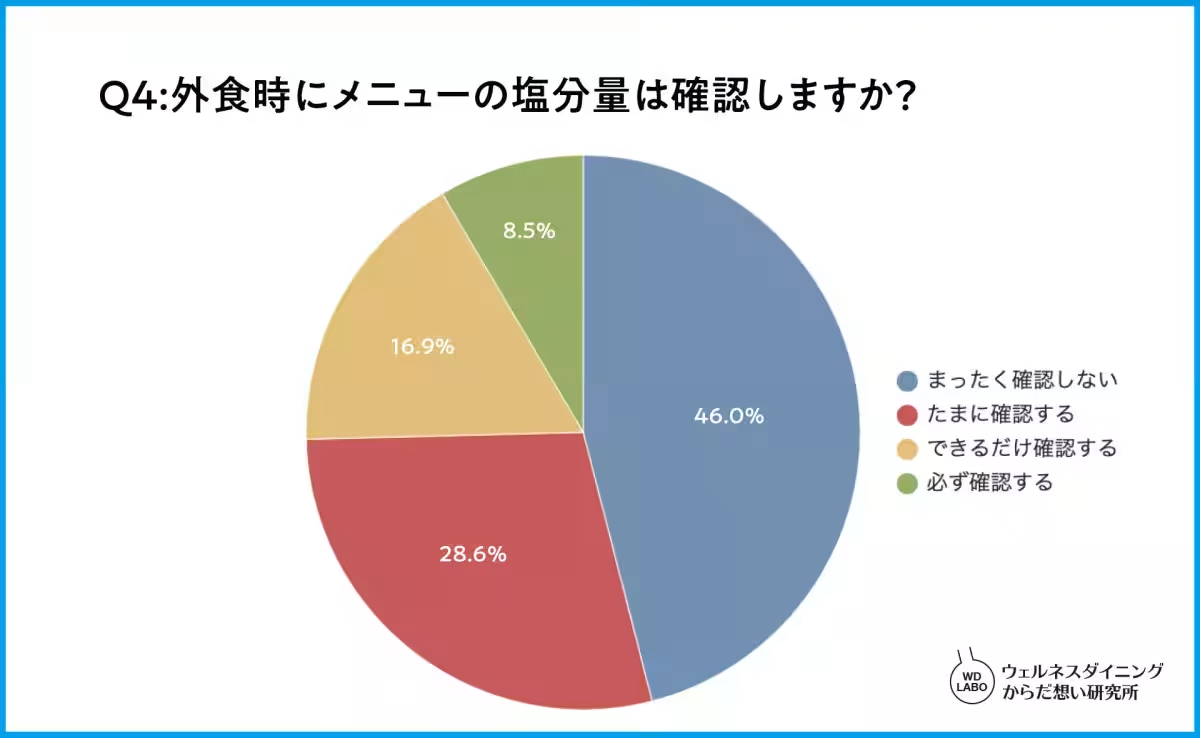

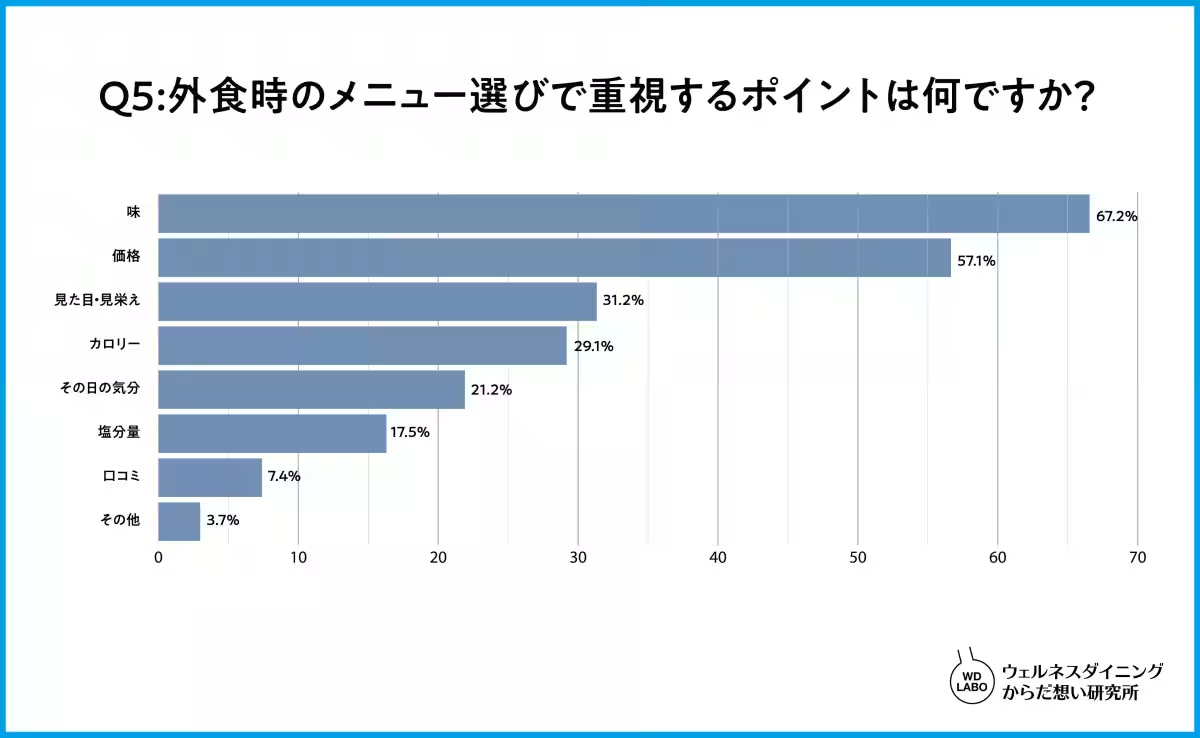
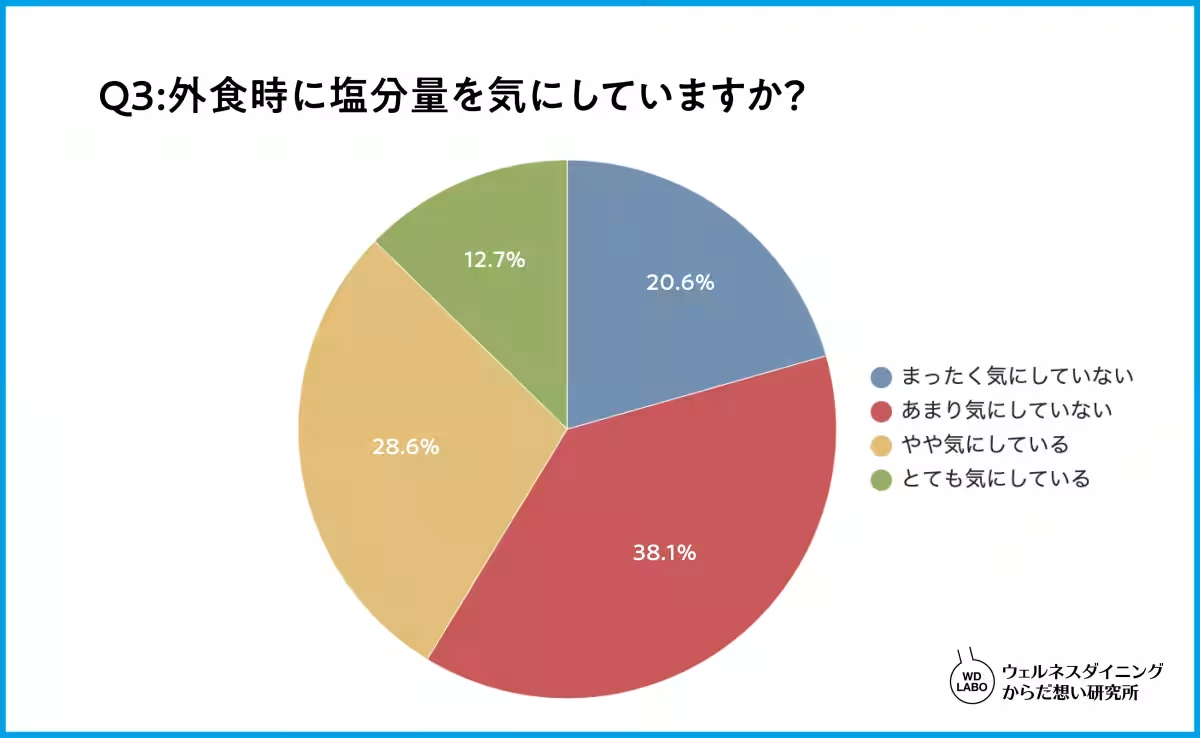
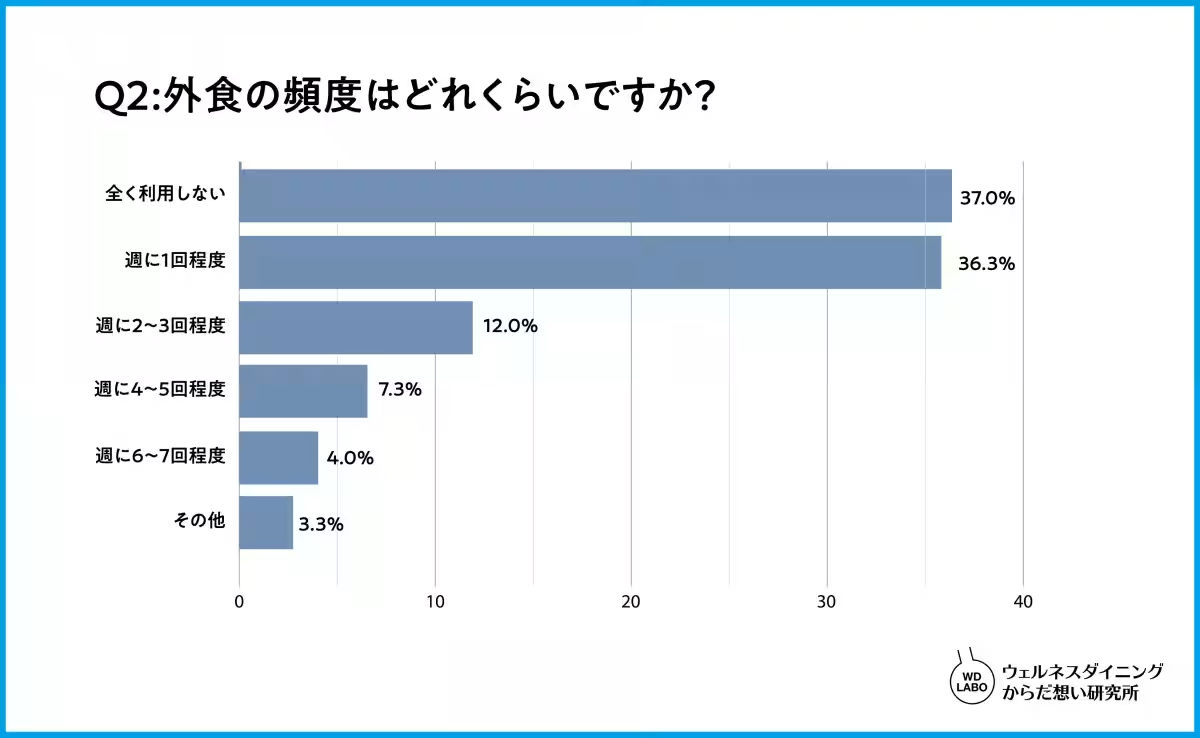

Topics Health)










【About Using Articles】
You can freely use the title and article content by linking to the page where the article is posted.
※ Images cannot be used.
【About Links】
Links are free to use.